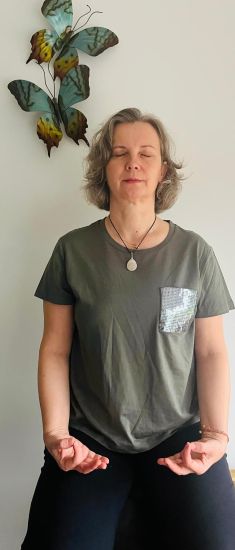Facts & Statistics to Inspire Your Practice
In a world that moves fast, the practice of slowing down has become a radical act of self-love. Meditation, once seen as a spiritual luxury, is now recognised as a powerful tool for emotional, mental, and physical well-being.

Whether you’re a seasoned practitioner or just starting to explore your inner world, the science and statistics behind meditation affirm what many of us already feel in our hearts: this practice changes lives.
Let’s begin with the numbers. A 2022 report from the National Centre for Health Statistics found that meditation is the fastest-growing wellness trend in the United States. Over 14% of adults now practice some form of meditation, up from just 4% in 2012. That’s millions of people choosing to turn inward, to reconnect with themselves amidst the noise of the outside world.
And the benefits are profound.
Clinical research shows that meditation can reduce stress by up to 60%. That’s not just a small improvement—it’s a rewiring of how we relate to pressure and overwhelm. Cortisol, the body’s main stress hormone, drops significantly in those who meditate regularly. This not only supports emotional balance but also improves immune function, sleep quality, and even heart health.

One powerful study published in Psychosomatic Medicine found that mindfulness meditation led to a 50% reduction in anxiety symptoms. Another study from JAMA Internal Medicine revealed that meditation can be as effective as antidepressant medication for treating symptoms of depression. For women especially, who are often juggling the roles of caretaker, professional, partner, and everything in between, this kind of holistic healing is essential.
But perhaps the most beautiful truth is that meditation isn’t about escape—it’s about returning.
Returning to the heart, to presence, to the wisdom within. Brain scans show that consistent meditation increases grey matter in areas of the brain linked to compassion, emotional regulation, and self-awareness. This isn’t just about becoming calmer—it’s about becoming more you.
In fact, even short, consistent practices create lasting change. A daily 10-minute meditation has been linked to improvements in attention, mood, and resilience. You don’t need hours in silence or a retreat in the mountains (though those are lovely too). What matters is the intention—to pause, breathe, and listen to your inner guidance.

In my own journey, and in the women I guide through meditation and tarot, I’ve witnessed how this sacred practice opens the door to clarity, courage, and connection. It’s a gentle return to the self. A chance to slow down and remember: you are already whole.
So, whether you meditate to ease anxiety, cultivate intuition, or simply feel more grounded in your day, know that your practice is part of something bigger. You are contributing to a global shift in consciousness—one breath at a time.
Main – Photo by Göran Eidens on Unsplash



